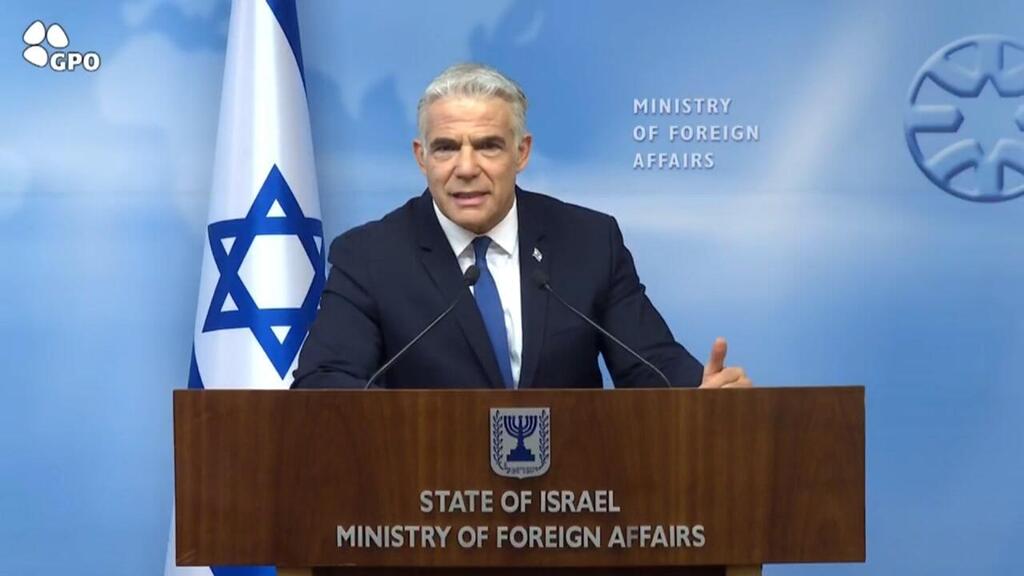Foreign Minister Yair Lapid said Wednesday that Israel is looking to U.S. President Joe Biden's Mideast trip next month to help normalize relations with Saudi Arabia, a country with which it does not have official ties.
Lapid spoke a day after the White House announced the whirlwind trip to Israel and the West Bank followed by a flight to Saudi Arabia.
At a news conference in Jerusalem, the minister was asked about his expectations from Biden's expected stop in the kingdom and first said he didn't want to "steal the show from the president's visit."
"The fact that the president is going to fly directly from here to Saudi Arabia is probably signifying that there is a linkage between the visit and the ability to improve relations," Lapid said.
Israeli leaders have long said they want to add countries to the four Arab states - Bahrain, Sudan, Morocco and the United Arab Emirates- that established diplomatic ties with Israel known as the Abraham Accords.
"There is a list of target countries: Saudi is first among them, along with other nations such as Indonesia," he told reporters. Asked whether there would be an Israeli official on the plane to the kingdom, Lapid said he didn't know. But he joked that "Air Force One is a big plane, maybe we'll hide someone in a bathroom."
Israel and Saudi Arabia do not have official diplomatic relations, but have shared clandestine security ties over a shared enmity of regional arch-rival Iran. It has long been rumored to be among the Arab states considering the establishment of open ties with Israel.
In 2020, then-Israeli Prime Minister Benjamin Netanyahu reportedly flew to Saudi Arabia for a meeting with Crown Prince Mohammed bin Salman.
That purported meeting came shortly after Israel had established full relations with the United Arab Emirates, Bahrain and Sudan as part of the U.S.-brokered "Abraham Accords." A similar normalization agreement was later inked with Morocco.
Saudi Arabia's King Salman has been a longtime supporter of the Palestinians and their desire to establish an independent state in the West Bank, Gaza Strip and east Jerusalem. The kingdom has conditioned the establishment of full diplomatic ties with Israel upon a two-state solution to the decades-long conflict with the Palestinians.
In recent years, Saudi Arabia has allowed flights between Israel and Gulf states to cross through its airspace.
On Iran, Lapid said that all parties recognize that a regional nuclear arms race "is in nobody's interest."
Negotiations between world powers and Iran to strike a new agreement to replace one signed in 2015, and later abandoned unilaterally by the Trump administration, to curtail Tehran's nuclear program have dragged out for months.
Israel has long contended that Iran seeks to develop nuclear weapons, and will take whatever action necessary to prevent it from doing so. Iran insists its nuclear program is for peaceful purposes only.
"We are trying to put Iran under siege both security-wise and policy-wise," he said.



